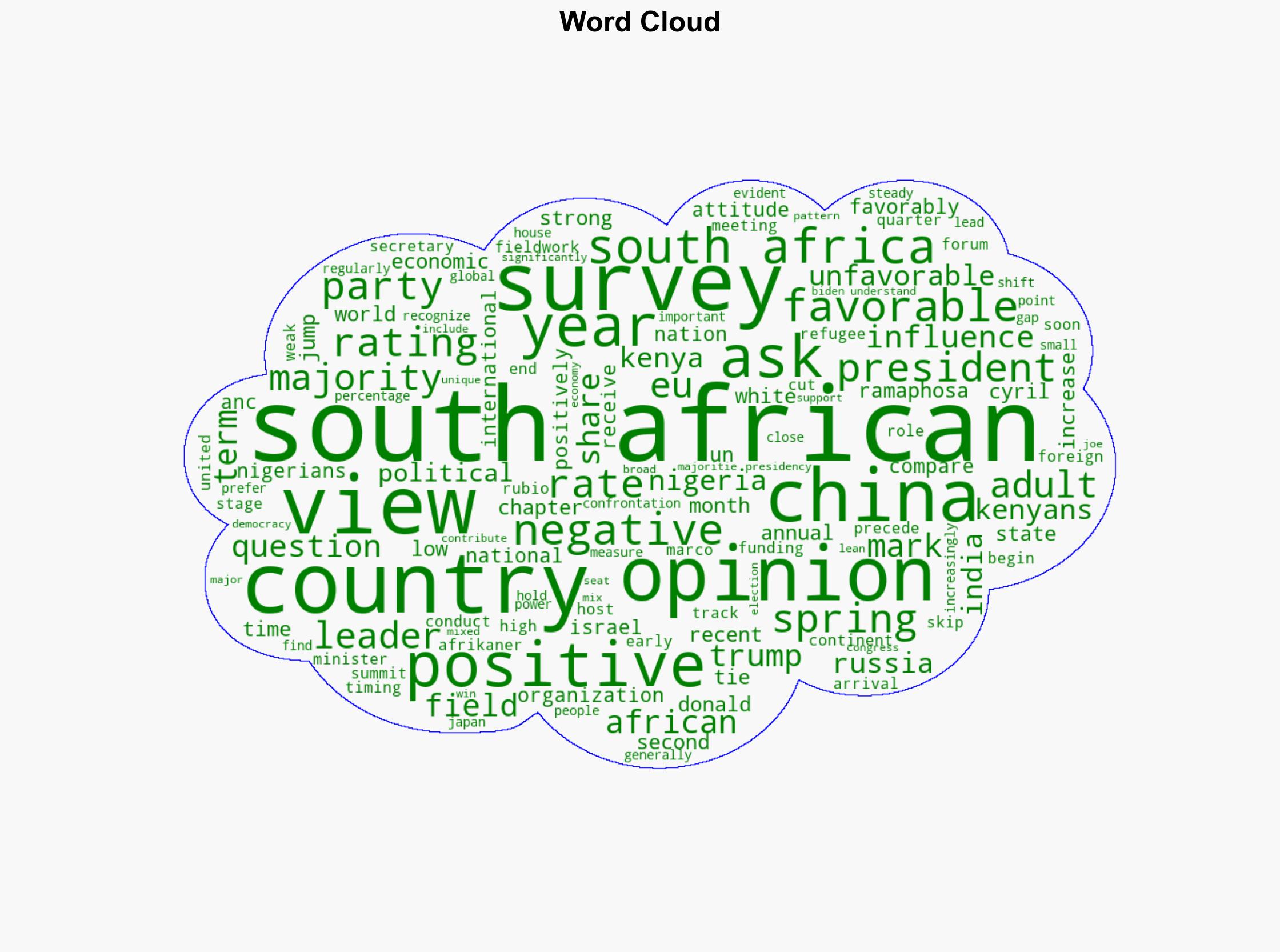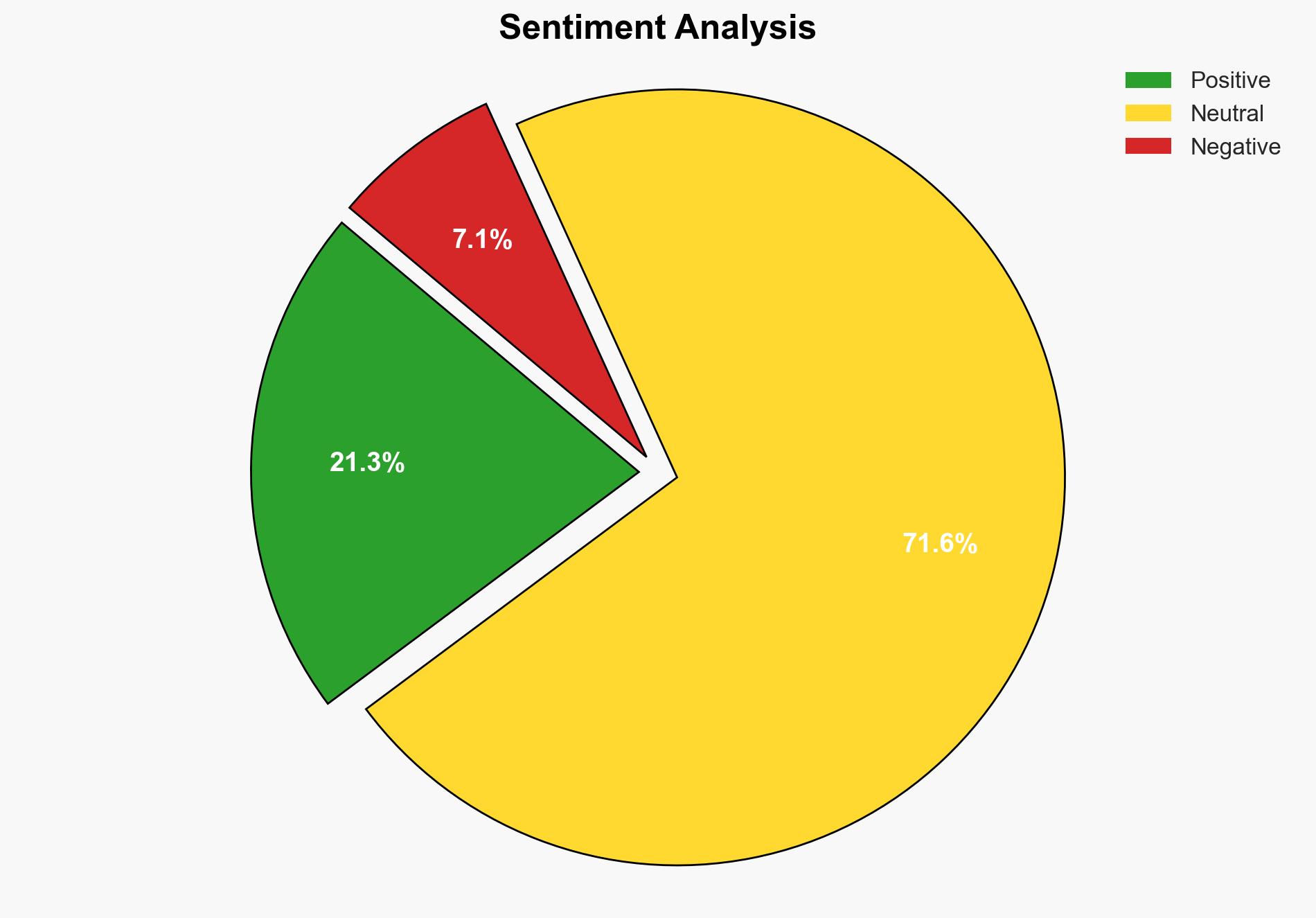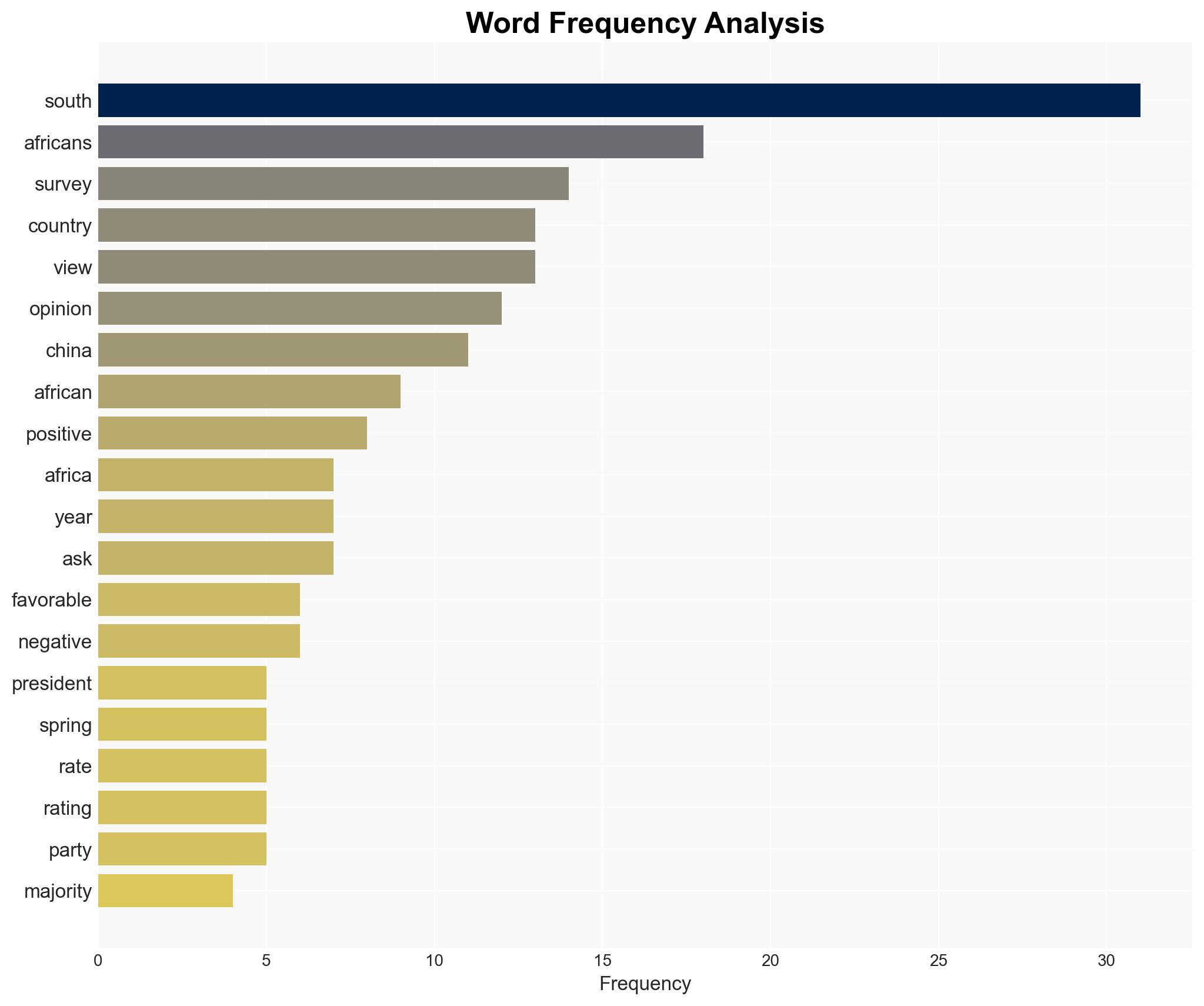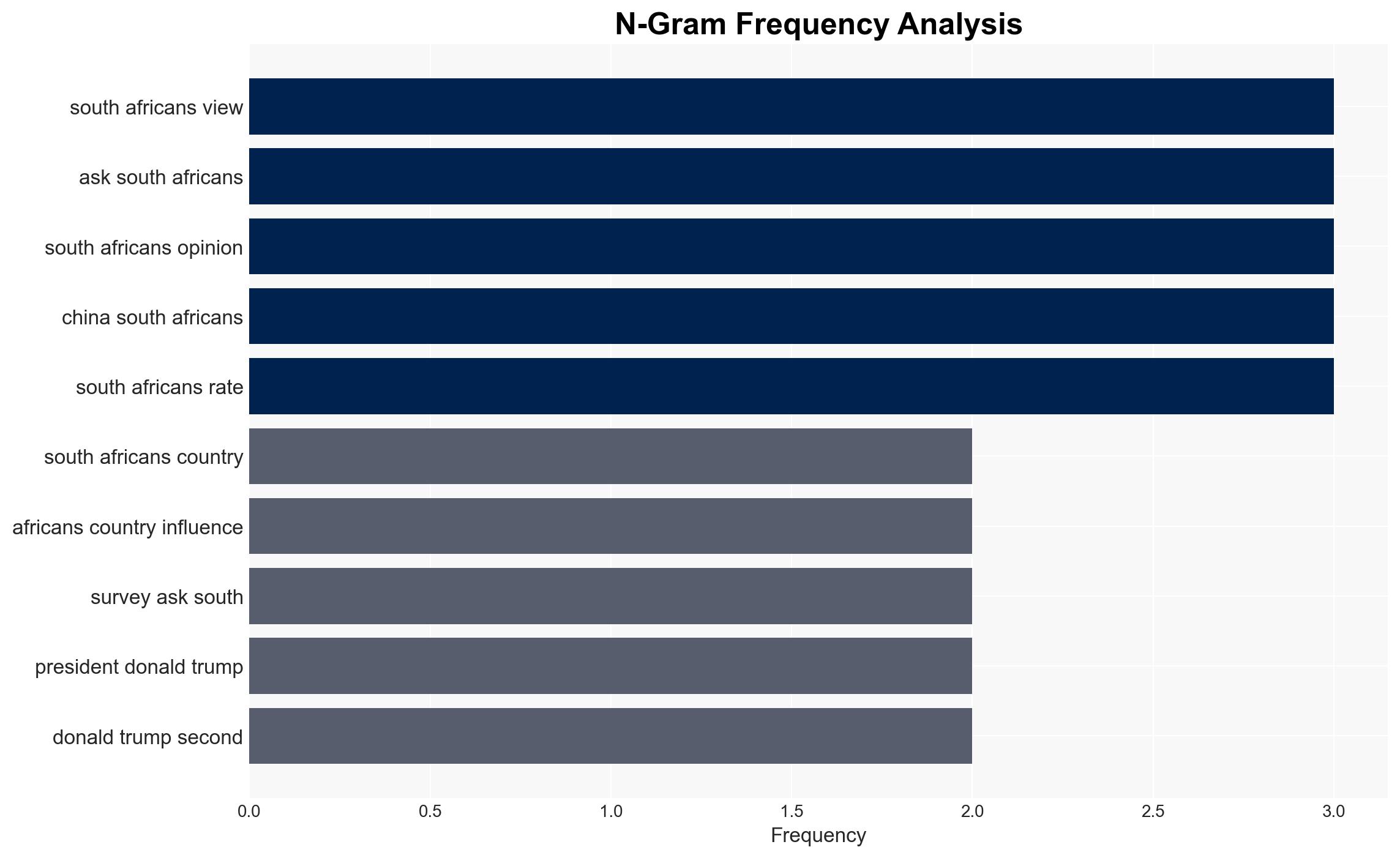South Africans See Their Countrys Influence Weakening Ahead of G20 – Pew Research Center
Published on: 2025-11-13
AI-powered OSINT brief from verified open sources. Automated NLP signal extraction with human verification. See our Methodology and Why WorldWideWatchers.
Intelligence Report: South Africans See Their Country’s Influence Weakening Ahead of G20 – Pew Research Center
1. BLUF (Bottom Line Up Front)
South Africa’s perceived weakening influence on the global stage is primarily attributed to shifting international alliances and domestic political challenges. The most supported hypothesis is that South Africa’s strategic pivot towards China, amidst deteriorating relations with Western powers, is influencing public perception. Confidence Level: Moderate. Recommended action includes reinforcing diplomatic ties with both Western and Eastern powers to balance influence and mitigate economic risks.
2. Competing Hypotheses
Hypothesis 1: South Africa’s influence is perceived as weakening due to its strategic realignment towards China and away from traditional Western allies, resulting in a shift in public perception.
Hypothesis 2: Domestic political instability and economic challenges are the primary drivers of the perception of weakened influence, independent of international alignments.
Hypothesis 1 is more likely due to the significant increase in favorable views towards China and the concurrent decline in Western relations, as evidenced by the survey data.
3. Key Assumptions and Red Flags
Assumptions: The survey accurately reflects public opinion; the timing of the survey did not significantly bias results.
Red Flags: Potential bias in survey methodology; geopolitical events influencing public opinion at the time of the survey.
Deception Indicators: None identified, though media portrayal of international relations may skew public perception.
4. Implications and Strategic Risks
South Africa’s pivot towards China could lead to economic dependencies, reducing leverage in international negotiations. Political instability may exacerbate economic challenges, leading to increased domestic unrest. Cyber and informational threats could target South Africa’s digital infrastructure, exploiting perceived weaknesses.
5. Recommendations and Outlook
- Actionable Steps: Strengthen diplomatic engagement with both Western and Eastern powers; diversify economic partnerships to reduce dependency risks.
- Best Scenario: Balanced international relations enhance South Africa’s global influence and economic stability.
- Worst Scenario: Economic dependency on China leads to reduced sovereignty and increased domestic unrest.
- Most-likely Scenario: Continued strategic alignment with China, with gradual improvement in Western relations.
6. Key Individuals and Entities
Cyril Ramaphosa (President of South Africa), Donald Trump (Former U.S. President), Marco Rubio (U.S. Secretary of State), Joe Biden (U.S. President).
7. Thematic Tags
Regional Focus: South Africa, China, United States, European Union
Structured Analytic Techniques Applied
- Causal Layered Analysis (CLA): Analyze events across surface happenings, systems, worldviews, and myths.
- Cross-Impact Simulation: Model ripple effects across neighboring states, conflicts, or economic dependencies.
- Scenario Generation: Explore divergent futures under varying assumptions to identify plausible paths.
- Narrative Pattern Analysis: Deconstruct and track propaganda or influence narratives.
Explore more:
Regional Focus Briefs ·
Daily Summary ·
Methodology





